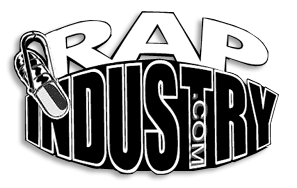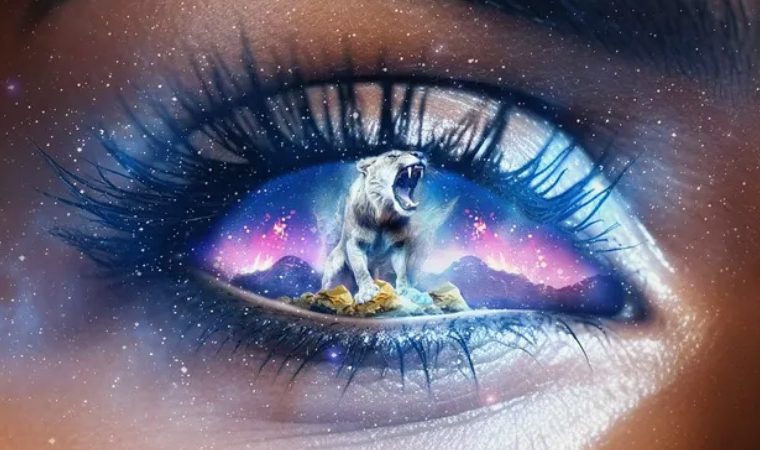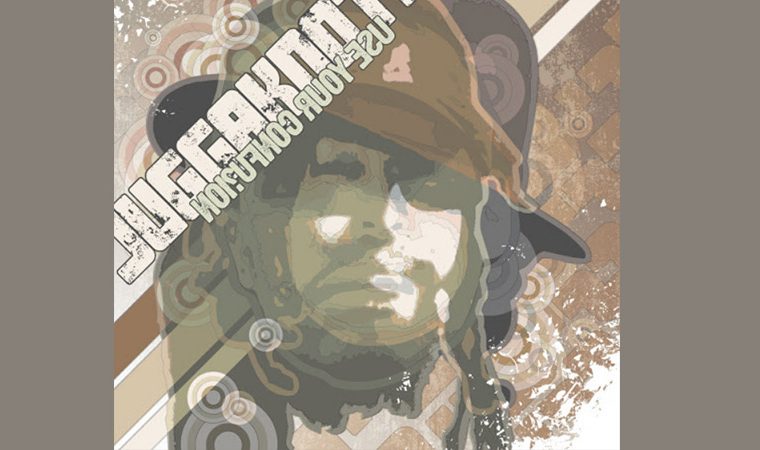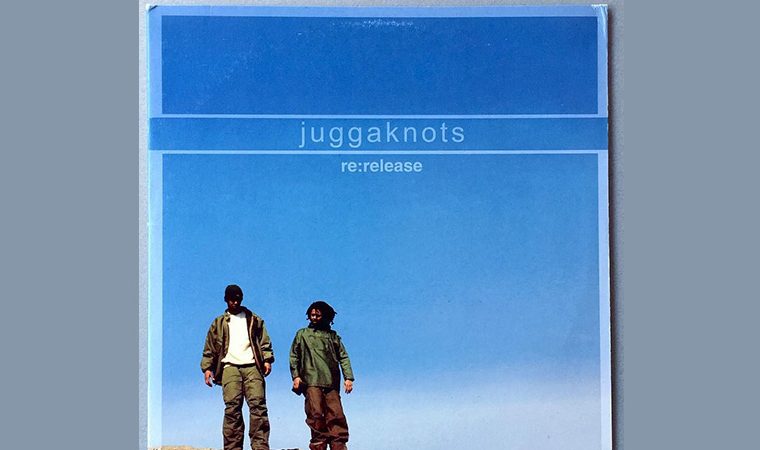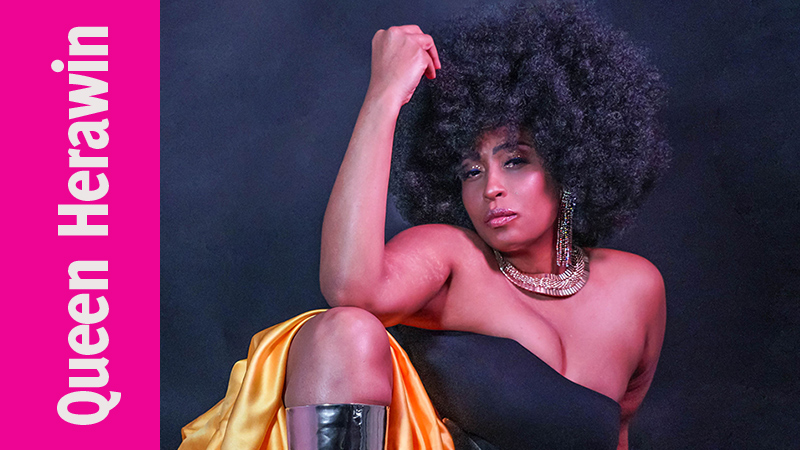
By: Todd “DG” Davis
Rapindustry.com
Photo Credit: Pri the Honeydark
Underground Hip Hop stalwart Juggaknots, comprised of founders; siblings Breeze Brewin and Buddy Slim a.k.a. Fever the Kid, and later joined by younger sister Queen Herawin, initially arrived onto the music scene way back in 1996 with their heralded debut LP, Clear Blue Skies [Fondle ‘Em Records]. The pioneering Golden Era group would finally return a full decade later with their sophomore body of work, Use Your Confusion.
First things first, let’s hop into this single, “Manifest,” featuring Apathy & Mickey Factz — Tell me about this particular track; how did it come to fruition?
“Manifest” came together in a layered way. The onset of that track happened from a connection to the producer, Supastition, who I had met through my brother, Breeze. I really liked his production style, and asked for him to send a few tracks my way. We had been talking about wanting to collaborate on something together. One of the beats he sent me became “Manifest.” It really stood out. Supa has a real knack for creating percussion that has a very powerful, drawing sound. Once the beat was settled upon, the next thing was finding other artists to collaborate with that would match the beat and the tone, basically the feel of it. I immediately knew Apathy would be perfect on the track, and that there would be a real synergy there. I respect him as an artist tremendously, and have always wanted to do something collaborative with him. This track is also the only song that has two other artists featured on it; Apathy and Mickey Factz. Mickey was running one of his verse specials, and I didn’t want to miss the opportunity to get him on the song as well. Mickey always packs a punch with solid, bar for bar lines. This display proved that. Although we recorded our verses in different locations, the song illustrates a genuine sense of cohesion and hits hard.
“Manifest” comes courtesy of your sophomore LP, Awaken the Sleeping Giant — Conceptually, what does this title represent both to and for you?
I was intentional about placing “Manifest” as the last song on the album. Placing “Manifest” in that way was about setting the tone for what would develop in the next project, speaking to the idea of a continuum. “Manifest” also speaks to the power of not just personal manifestations, but how we can manifest things collectively as people, as artists, and as groups; to create movements and change, especially in the climate that we’re in now. It also speaks to the things that are still in motion, manifesting form with more work to do and more songs to create and more transformation to arise.
How then does Awaken the Sleeping Giant either differ and / or compare to previous Queen Herawin efforts?
Awaken the Sleeping Giant compares to the previous album Metamorphosis in the sense that it is indeed an evolution of sound from a technical skill aspect to the collaboration and overall sharpening of the pen. There is also ten years between the two projects, so obviously growth should be evident, which I believe is definitely apparent. There was also real thought placed on how the album was curated from a thematic space, with each track speaking to specific emotions.
When you sit down to pen your rhymes, where do you draw inspiration from?
The inspiration honestly varies depending on the subject matter. Whatever the concept is, I usually spend time sitting with the thought or idea, to conjure up words, lines and emotions associated. The beat is also instrumental in this process. It’s key for me to connect with the track and vibe with it. I’ll play a beat on repeat, often when driving, which allows me to zone in and set a mood. This also helps to develop thoughts and cadences in conjunction with the track. Other times, I’ll hear a track and immediately write to it and the words just flow.
Reflecting, tell me your whole inception into music — When did you first become interested? And how did it all begin for Queen Herawin?
Music has always been a part of my life. I grew up surrounded by music; whether reggae, soca, jazz, soul, funk, blues, hip hop, rock, Latin vibes, country even. My mother, being from Jamaica, played Bob Marley regularly, among other favorites like “Stealing Love” from Carlene Davis or “Cottage in Negril” by Duane Stephenson. But there were also moments of Kenny Rogers and Julio Iglesias mixed up with Sleel Pulse and Nat King Cole. My brothers Kev, a.k.a. Fever the Kid, and Breeze, both played a major role in exposing me to other artists in connection to funk and soul; like Con Funk Shun or The Meters, among countless others. All the things I was hearing from them in the house, juxtaposed with growing up in the Bronx and all that came with simply being in that musically influential environment led to a love for hip hop directly with artists like KRS-One, Big Daddy Kane, Rakim, Slick Rick, Audio Two, MC Lyte and so many others. I remember my brother Kev throwing parties, ones I was too young to attend, but would still sneak by the door, crack it and hear the music a little louder. These moments would set the tone for the love affair I’d have with music. Every day after school Video Music Box with Uncle Ralph would be my go-to after watching Bob Ross paint. This dichotomy of hip hop and painting would become the fabric of my identity. My love would take me into the practice of it all, seeing it and then wanting to emulate it at first, then find my way to my own voice. Having a close-up look to the writing practice through my brothers, but also the production aspect, hearing the construction of tracks and then seeing the transfer into the studio, allowed me to be privy to different parts of the process. This wasn’t only an obvious inspiration, but it served as an educational tool, bringing me into the layers and parts of song and project production. I understood that it was bigger than just a verse, but that the music had the potential to be something larger. The sound my brothers were creating with Juggaknots made that crystal clear from the very beginning. I knew whatever I was going to do with the music would be grounded in respect for the craft, and learning ways to become a better artist and communicator of sound, meaning, and emotion.
Now you’re a native of where exactly? And growing up there, who all did / do you consider to be your strongest influences?
I’m a native New Yorker. I grew up in the Bronx as a young child. My family then moved to Westchester, which was a 15-minute ride from where we used to live. My brothers wouldn’t wait long before moving back to the Bronx. Their connection to the Bronx, extended my relationship with my first home. Although young, those memories were pivotal in setting the tone for my relationship with hip hop, and my affinity for it. I’d later find myself back there at our home studio, recording, connecting, and later living there again until after the birth of my daughter. It’s certainly been a back-and-forth relationship between the Bronx and New Ro, both influencing my artistry. The noise of the city, the quiet outside of it. I think both have played a significant role.
That said, how do you describe / define the style of music that you create and perform?
Skilled. Serious. Lyrical. Reflective. Honest. Transparent. Connective. Passionate.
Where does your moniker originally derive from?
It was a name given to me by Breeze actually. It has shifted over time. The original spelling was Heroine. So, you’ll see some older documents and songs using that spelling. After some time, I changed it because some interviewers were documenting it as Queen Heron, shortening and shifting it without permission and creating something that it wasn’t. I decided to change the spelling, so that the meaning was clear, to reduce confusion or temptation to call me something other than my name.
What particular string of events actually led to your initial linking up and ultimately becoming a member of The Juggaknots?
Well, Fever the Kid and Breeze Brewin of the Juggaknots are my actual brothers. So, linking up with them looked like going into the kitchen or living room. We are all family. There is no separation from that. My brothers created something amazing as the Juggaknots before me. They should also be credited for the inception of the powerhouse of that early underground movement. I was blessed to be connected to them, and therefore privy to seeing that transformation through my relationship with them as their sister. Seeing that, and being inspired by it, sparked that desire to want to be part of it. I think it was proximity, passion and persistence that eventually created the space at the table for me to be a Juggaknot member. I was always around and enamored by them and what they were doing. Naturally, as the little sister, I wanted to cling to them, what they were doing, where they were going, etcetera. My transition into the group however was not an immediate one just because I was related or interested. It took many years of sharpening my pen, improving my skillset, learning principles of the craft. Breeze and Kev were like senseis. Our home was the dojo. I had to earn my place there. And in time, I did.
Now August 11th 2023 marked the 50th Anniversary of Hip Hop — What exactly does that mean to and for you?
It means that we created something of real value; a lasting culture, a movement, a way of life that is rooted, and yet continuously growing and evolving. It’s something to be part of and proud of. It also has more to do.
To quote the late, great The Notorious B.I.G., “You never thought that Hip Hop would take it this far!” — Was this something that you ever could’ve imagined?
I think the quote means that we were in the center of it. It wasn’t something foreign to us, it was a part of us. Organic. Natural. We were busy being and breathing it to think beyond the moment. Giving it form. Additionally, I think seeing how the shifts of hip hop started to happen from geographical shifts to sonic shifts, to political, social, economic, and commercialized shifts, there became an understanding on some level that it possessed this sense of morphology. It could be what it was, but also grow in ways we didn’t yet realize. We just loved it and were it. But with it, the more I developed and developed with it, the more I became aware of ways in which I could shift through it, grow, expand, and I challenged myself to become bolder, not just better. I would eventually merge hip hop and education formally, although hip hop by itself is in fact a teaching tool by itself, but with intention I’d see more value in how they functioned together though Hip Hop Education. This convergence took me to places I didn’t imagine it would or couldn’t imagine based on my then limited mindset earlier on, along with the societal mindset that didn’t fully appreciate its power or allow us to fully embrace all that it offered without some resonance of shame as if it didn’t have the transformational value, it inherently does. I was busy just doing it, not recognizing the power beyond spitting a 16. But moments of obsession and honing the craft gave me the vantage point I needed from the aesthetic standpoint as an MC. It spoke to discipline. While my experience as an educator, in times away from the mic, gave me experience with teaching from a traditional sense. The combination of the two made me an authentic, insightful, and non-traditionalist in education sector. This diversity and duality allowed me to connect on multiple levels with different audiences, whether classroom or stage.
What are some of your fondest, most stand-out moments / memories during your lengthy tenure in this thing called Hip Hop?
London just felt good. I remember the stage, expansiveness of it, and taking selfies in the stairway of the venue. Being in the UK with Pumpkinhead for the last time performing together, not knowing a few years later he would pass. I’m so glad we had that time together. Chicago. It felt like home. The people there knew the lyrics to the songs. The stage was close. Warm. It would later become my home, living and teaching there for a few years. I love Chicago. Italy. I remember fans asking us to sign their arms with Sharpie markers. Eating shrimp and pizza, having an Italian man yell at us for taking a beer instead of letting him bring it to the table for us in the right hospitable way. Overseas is just different. L.A. The first time I performed after giving birth to my daughter. I cried in the hotel. She was only a few months old. The shows were good, but I remember feeling in that moment a distinct sacrificial split between being both an MC and a mother. It would be a challenge for us both, parts of myself would have to be sacrificed. It was the initiation to the idea that there would be more moments of separation for us both, while also introducing me to the guilt I’d experience by loving different things. Wetlands. SOB’s, Nuyorican. All New York. Nostalgia. Building a foundation. A legacy. Rwanda, Africa. Peru. Realizing the vastness of hip hop, and the future of where it and I could go, together.
That said, what are your future plans and / or goals for the (remainder of the) 2025 season?
Create more. Create with more intention. Continue to connect though community, collaboration, and innovation through hip hop, education, art, culture and whatever genre or medium grows from here. Find new ways to expand, creative ways to say and express new or old things, while challenging myself to reach new heights.
Switching gears here, what exactly do you want people to get from your music?
I’ve realized with this project that different songs resonate with different people in a range of ways. What has been consistent with those who have tapped into the project is that it resonates with them in an authentic way. Some people have even thanked me for speaking to certain topics or issues, like anxiety, sharing that it spoke with them or helped them or someone they love. The idea that what we make can not only be a source of pleasure and joy, but potentially something to assist with pain, healing, encouragement, or processing is quite profound. I don’t take that for granted or lightly. Music and art have the power to transform, to unearth things hidden or dormant. I hope that people can enjoy it, feel good when listening to it, and maybe even moved by it to do something positive or transformative for themselves.
If you could collaborate with any one artist, living or dead, who would it be and why?
Lauryn, Nas, DOOM, BO$$, the list could honestly go on. There are many artists I respect and value in various genres.
If you could play any venue in the world, which one would you choose and why?
Madison Square Garden in New York and Red Rocks Park and Amphitheatre in Colorado. Both are grand in different, yet iconic ways.
What do you feel has and will continue to be the key to your longevity?
Innovation. Authenticity. Collaboration. Exploration. Education.
Do you have any other outside / additional (future) aspirations, maybe even completely away from entertainment?
Authorship and exploring more documentary work. I’d also like to get back to painting and curation. I’m always curious about new ways to convey and examine information under a creative lens.
What’s an average day like for you?
An average day for me is in the classroom teaching. I currently teach high school, and I may be back to teaching college again soon. After a workday, I may be off to a hip hop event, a performance or something that keeps me connected to the space via other creatives and friends. It will involve walking the dog, possibly posting to connect with fans and collaborate through social media, listening to beats in the car on the way to or from work, and maybe even cooking dinner. Repeat. My life is currently a juggle between worlds, as it is for many of us.
What is your favorite part about this line of work? Your least favorite? And, why?
Being able to connect with others, traveling to new places I might not have seen without hip hop, and find new ways to create, express, explore the craft, see diverse cultures, and make good music. And listening to a new beat never gets old, nor does the excitement of entering the booth and anticipating the beat and pouring yourself into that sonic and spiritual space.
What advice would you have for someone wanting to follow in your footsteps?
Understand that it is a process. It ebbs and flows. Consistency matters. You must be obsessive to an extent, depending on what you want to achieve. Educate yourself. Collaborate. Be authentic. Grow, learn, explore. And be aware that the creative aspect is just one part, the business is another.
Looking ahead, say five or maybe even ten years from now, where do you see yourself?
Hopefully, doing something transformative that combines and aligns the different creative parts of who I am fully in a way that is even more courageous and free. — Queen Herawin / Juggaknots
